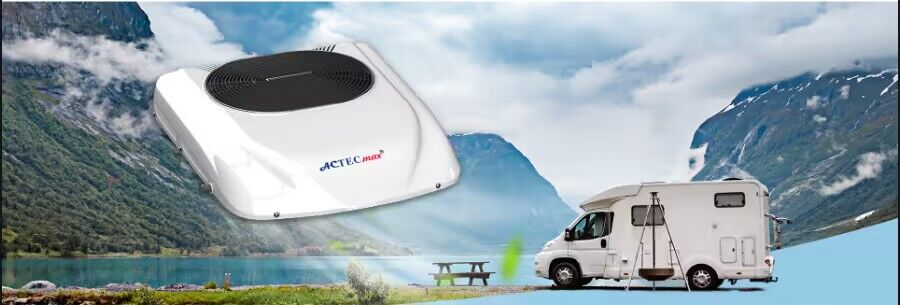
How to Quiet RV AC: Tips for a Peaceful Journey
An RV air conditioner is essential for comfort, but its noise can be an unwelcome companion on the road or while relaxing at a campsite. Luckily, there are ways to make your RV’s A/C run quieter without sacrificing cooling performance. In this guide, we’ll explore practical tips on how to quiet RV AC so you can enjoy a peaceful, comfortable environment wherever your travels take you.
Why Is My RV AC So Loud?
Before diving into noise reduction solutions, it’s helpful to understand why your RV AC might be noisy in the first place. Some common causes of A/C noise include:
- Aging or Worn Parts: Over time, components like fans, compressors, and motors can wear out and become louder.
- Loose Parts or Mounting: Vibrations from loose components or inadequate mounting can lead to increased noise levels.
- Dirty Filters or Coils: Dust and debris can cause the A/C to work harder, which often results in more noise.
- Fan or Motor Issues: Misaligned or malfunctioning fans and motors can produce excessive noise during operation.
How to Quiet RV AC: Steps for a Quieter A/C System
Here are some actionable tips to reduce your RV A/C noise:
1. Clean or Replace the Air Filters
Dirty filters restrict airflow, making the A/C work harder and often causing it to be noisier. Regularly clean or replace your A/C filters to ensure smooth, quiet operation.
- How to Do It: Remove the air filter according to your A/C manual, then clean or replace it as recommended by the manufacturer. Many RV A/C systems require cleaning filters every month, especially during frequent use.
2. Tighten Screws and Bolts
Loose parts can cause vibration and rattling noises when the A/C is running. Inspecting and tightening all screws, bolts, and mounting components can often quiet things down significantly.
- How to Do It: Turn off the A/C and remove the shroud or cover to access the internal components. Use a screwdriver to carefully tighten any loose screws or bolts, paying special attention to fan mounts and housing attachments.
3. Add Soundproofing Materials
Adding soundproofing material around the A/C unit, such as foam or rubber padding, can absorb vibrations and muffle noise.
- How to Do It: Place soundproofing material between the A/C unit and the RV’s roof. You can also add insulation or soundproofing foam around the air vents to reduce sound as it exits the system. Ensure that the material doesn’t block airflow.
4. Install a Soft Start Device
A soft start device reduces the initial surge of power when the A/C turns on, making startup smoother and quieter. This not only reduces noise but can also prevent electrical overloads.
- How to Do It: Soft start kits are widely available and can be installed by following the manufacturer’s instructions or by consulting a professional if needed. These devices are especially helpful in reducing the loud “thump” sound often heard at startup.
5. Lubricate the Fan Motor
If your RV’s A/C fan is noisy, it may need lubrication. Regular maintenance of the fan motor can help it run more smoothly and quietly.
- How to Do It: Turn off the A/C and remove the cover to access the fan motor. Use a high-quality machine oil to lubricate the motor’s bearings, which can help reduce noise.
6. Check for Misaligned or Damaged Fans
Sometimes, fan blades can become misaligned or bent, which can cause them to hit other parts of the A/C unit, leading to a noisy operation.
- How to Do It: Inspect the fan blades for signs of bending or misalignment. If they’re bent, you can often realign them by gently adjusting their position. In cases of significant damage, you may need to replace the fan.
7. Insulate the A/C Vents
Soundproofing the vents can prevent noise from traveling into the RV’s interior. Adding insulation to the ductwork is an effective way to dampen noise.
- How to Do It: Use foam padding or noise-dampening tape to insulate the ducts or vents. This can help block sound without reducing airflow, making the A/C unit run quieter.
8. Consider Upgrading to a Quieter Model
If your RV A/C unit is older, it might be worth considering an upgrade. Newer models are often designed to be quieter and more efficient, with advanced noise-dampening technology.
- How to Do It: Look for RV-specific A/C units known for low noise levels, and read customer reviews to ensure you’re getting a model that meets your needs.
Additional Tips for Maintaining a Quiet RV AC
- Regular Maintenance: Preventive maintenance, including cleaning coils, changing filters, and inspecting parts, can keep your A/C running smoothly and quietly.
- Use the A/C on Low Fan Speed: Higher fan speeds are generally noisier, so if possible, use the low-speed setting for quieter operation.
- Park in Shaded Areas: Keeping your RV cool with natural shade reduces the load on the A/C, which can make it run quieter and more efficiently.
Conclusion
Understanding how to quiet RV AC can make a huge difference in your comfort level while traveling. By following these simple steps, you can reduce the noise from your A/C unit, making your RV a more peaceful place to relax. Regular maintenance, soundproofing techniques, and occasional upgrades are all great ways to ensure your RV’s A/C runs quietly and efficiently. With these tips, you’re set for a more enjoyable, noise-free adventure on the road!
